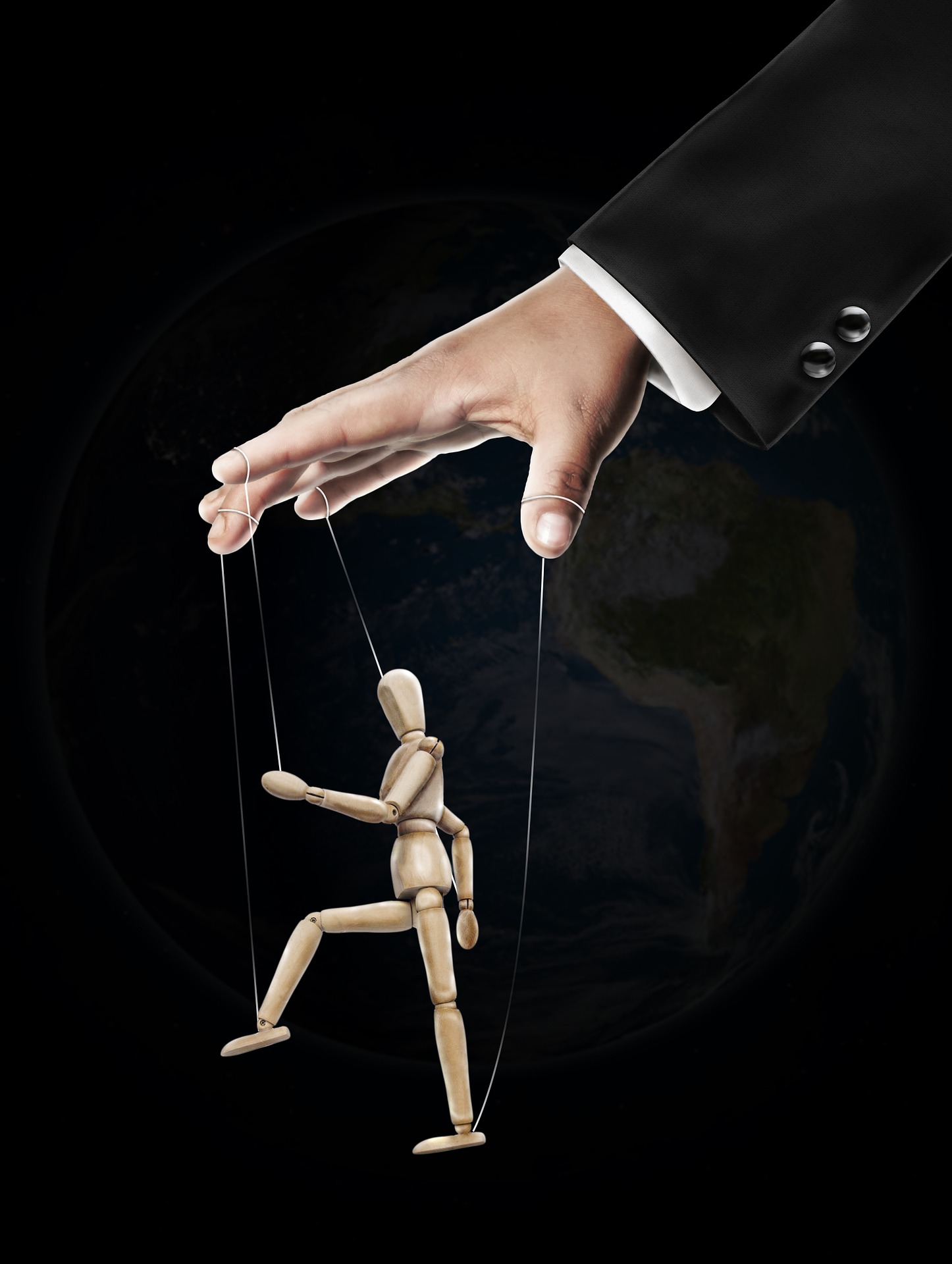
At some point of our lives, we may all have experienced gaslighting in a relationship. That is, someone may manipulate or brainwash you to question your own reality. In fact, gaslighting can happen in any relationships, including romantic partners, family relationships, yes, such as parents, friendships, and at work.
What is Gaslighting?
Oftentimes, abuse may exist within relationships that can be difficult to catch with the eye. There are manipulation tactics that people use. Sadly that can really put people into a dark space. One of the ways that people tend to do this is through gaslighting. So what does gaslighting mean? It is simply manipulating someone to the point where you question your own sanity. It is brainwash, psychological abuse, and intentional manipulation.
Why is it called gaslighting? The term comes from the 1938 play Gas Light, where a husband attempts to drive his wife to insanity by dimming the lights in the house, and denying it when his wife points it out. This comes from his desire for power or control, which clearly exists in many abusive relationships. Gaslighting can even affect your perception, reality, or memories. All these apparently can cause severe damage to anyone.
How to Detect a Gaslighter in a relationship?
Based the National Domestic Violence Hotline, there are different techniques a gaslighter can use to manipulate you,
Countering: This is what a gaslighter uses to question your memories, such as,
- “I never said that. You have a memory problem.”
- “You are just making it up”
- “You know you don’t remember things.”
Withholding: refusing to engage in a conversation, or pretending not to understand you so that they don’t have to respond to you. Examples are
- “You know you don’t make sense”
- “I don’t even know what you are talking about”
- “You are confusing me”
Trivializing: when a gaslighter belittles or disregards your feelings. for example,
- “What’s the big deal?”
- “You are just exaggerating.”
- “You are overreacting”.
Denial: pretending to forget events or how they occurred. For instance,
- “You are just making that up”,
- “That never happened”,
- “I was just joking”.
Diverting: when a gaslighter changes the focus of a discussion and questions your credibility instead, such as,
- “You are too sensitive”,
- “You are just paranoid”,
- “That sounds crazy. You need to check your brain.”
Stereotyping: using negative stereotypes about a person’s age, gender, race, ethnicity, sexuality, or nationality in order to manipulate them. For example,
- “You women are always so dramatic”,
- “Of course you millennials are selfish and not grateful.”
Types of Gaslighting
There are many instances where a romantic or sexual partner will use these tactics to gain control over their partner. As a matter of fact, this is a form of very serious abuse. These tactics can make someone feel isolated, scared, undermine their confidence, and so many more degrading emotions. Another type of relationship where gaslighting exists is through parent-child relationships. Abusive parents or caregivers may use gaslighting in order to control or shame children. They may belittle a child’s emotions or feelings, which can cause the child to feel serious isolation and shame. This will ultimately play into adulthood, where depression, anxiety, and other negative emotions can take over a person’s life.
Other types of environments to spot gaslighting includes
- medical gaslighting where doctors or medical professionals may dismiss a patient’s medical concerns on the basis that the patient is mentally ill,
- racial gaslighting when people use gaslighting techniques based on race or ethnicity,
- political gaslighting when a political figure can manipulate information in order to control people, and
- institutional gaslighting where gaslighting may occur in a company or organization.
These methods of gaslighting are all extremely damaging and harmful to people. It is interesting to note that gaslighting is not limited to one person, that is, its effects can reach a large number of people.
Signs of Gaslighting in a Relationship

How do you know someone is gaslighting you? A list of signs of gaslighting may help you to detect whether you are the victim. According to the National Domestic Violence Hotline, you may be experiencing gaslighting if you:
- Second-guess yourself and question yourself, “Maybe it is me”, “Guess I am wrong”
- Ask yourself,“Am I too sensitive?” multiple times a day
- Often feel confused or crazy, “Am I crazy?”
- Constantly apologizing to your partner.
- Making excuses for your partner’s behavior or actions, “They did that not to control, but just to help me.”
- Become withdrawn or unsociable
- Find yourself holding information from loved ones so that you don’t have to explain or make excuses
- Knowing something is terribly wrong, even though you cannot pinpoint it or express it
- Lying in order to avoid reality twists
- Having trouble making simple decisions.
- Sensing that you used to be a different person- more relaxed, or happier
- Feeling hopeless or joyless
- Constantly doubting yourself and your worth, “I am not good enough.”
These are all extremely difficult things to deal with, even when experiencing just a single sign. It is important to detect these signs within yourself, or within others, in order to get the right help needed.
The Dangers of Gaslighting
Gaslighting may not seem as serious when it happens, especially because it can be implicit in such hidden ways; however, it can really change the course of your life. A person who is trying to gaslight you will, more often than not, try to do it in the least obvious way possible. By doing so, they try to avoid opposition or even outside involvement. It is very common to ask, or hear the question, “if they’re being abused, why don’t they just leave?” In fact, understanding the complex effects of gaslighting will help to understand people who face domestic abuse. Without a doubt, it can be extremely heartbreaking and frustrating to see your loved ones being the victim of gaslighting, especially when helping them may not be so simple.
From Love-Bombing to Gaslighting
One of the biggest techniques a gaslighter may use, oftentimes a male partner, will be to seem romantic or even love-bombing. Of course they will initially hide their gaslighting. They will convince you that it is through love and romanticism that they are treating you this way. Blaming you for their own actions will further increase this manipulation and abuse, to the point where you may truly put all blame on yourself. All of these points are reasons why gaslighting can be so dangerous for many different people. In other words, it is a form of manipulation which can cause serious damage, and be hard to detect. Overall, it is important to remember that any abuse you face, or a loved one faces, is only the abuser’s fault.
Gaslighting Causes Damage to Mental Health
In addition, gaslighting has terrible long-term consequences. In particular, if you are the victim of gaslighting, it destroys your self-esteem and confidence. Over time, you could become conditioned to doubt yourself, feel helplessness, unable to make decisions, presenting memory problems, having PTSD, depression, and anxiety. More importantly, even if eventually the relationship ends, these damage to mental health may persist for a long time.
How to Deal With Gaslighting in a Relationship
It can be extremely difficult to experience gaslighting, and there is no set answer to help to solve it. Yet there are a number of ways that you can deal with gaslighting, or to help a loved one who is experiencing it. This process involves mindfulness, a powerful tool to clear and protect your mind.
Awareness of Gaslighting
The first step is to identify the problem of gaslighting and manipulation. This awareness can be a difficult task within itself because it involves calm and clear thinking. If it helps, writing your conversations down in a journal may help to organize your thoughts objectively. Check how you felt in the process of all these conversations. Look at whether there are any patterns of repeated denial of your feelings from the other party.
Accept your Feelings
Second, allow yourself to accept all your feelings and feel them. Acknowledge that there is a good reason to feel how you feel, and it is ok to feel this way. If it helps, keep track of your feelings and understand what triggers different emotions. By doing so, not only can you accept your feelings, but you can take actions to practice effective strategies to shift your moods and focus on rational thinking.
Organize your Thoughts
Once you are able to stay calm, it is high time to organize your thoughts and figure things out. Ask yourself a bunch of questions:
- How do I feel in this relationship?
- Am I falling into the explanation trap?
- Do I still have myself in this relationship?
- What do I lose and what do I gain if I walk away from this toxic relationship?
- Do I need a safety plan? What is it?
Once you have your clear answers, may be it is time to take actions. Meanwhile, if you feel the need to be more thorough, you can take a few other helpful steps.
Talk to Someone you Trust
Talk to your trusted friends or family. Ask them what they see in you that is different; Share with them your feelings; and Discuss with them your thoughts and plans. What is more important is to get their support you need to take actions. Chances are they may be able to help you with a clear vision, safety plan, understanding laws, and different strategies to achieve your goals.
Practice Self-Love and Self-Compassion.
When someone blames you, manipulates you, and even abuses you, it is very difficult to still have faith in yourself. That is to say, the best company of gaslighting is usually self-doubt and low self-esteem. However, part of the healing process involves practice of self-love and repeated self-compassion. This is to improve your confidence to believe in yourself again and make the decision for your own best interest.
Seek Therapy
Therapy can also be an incredible resource to speak about the toxicity and gaslighting you may be facing. As well, it is effective to get professional help so that you can figure out goals and a safety plan with your therapist. Psychotherapy provides a safe environment to disclose, discuss, and probably implement the plan. Besides, therapy helps you to heal as well as to better yourself with great insight about yourself and your relationships. There is always hope when dealing with gaslighting, Again, it is extremely important to remember that the blame only exists on the abuser’s fault.
Dr. June and her team are here to support you and assist you in your journey of dealing with gaslighting in a relationship. Our therapists in New York will help you to identify the gaslighting, gain insight, learn coping skills, and practice techniques to validate yourself. Call us free for 15 minutes, you deserve respect and the best quality of a relationship.
Special thanks to the contribution of our psychology intern Tammy Krikheli
Thank you so much for writing this. It’s such an important thing for people to know about, especially in current times!
Thank you, Mary D., for your support!